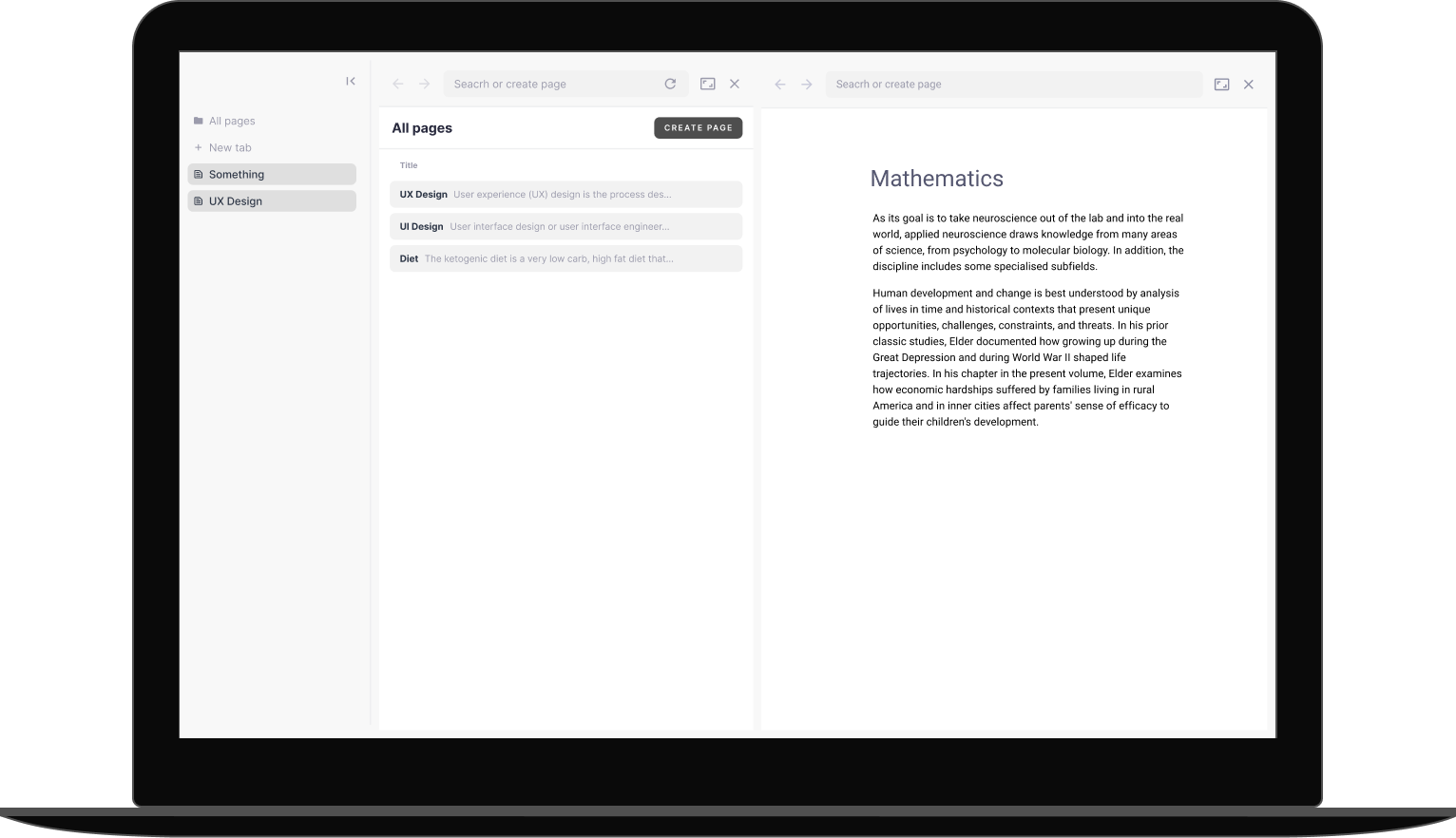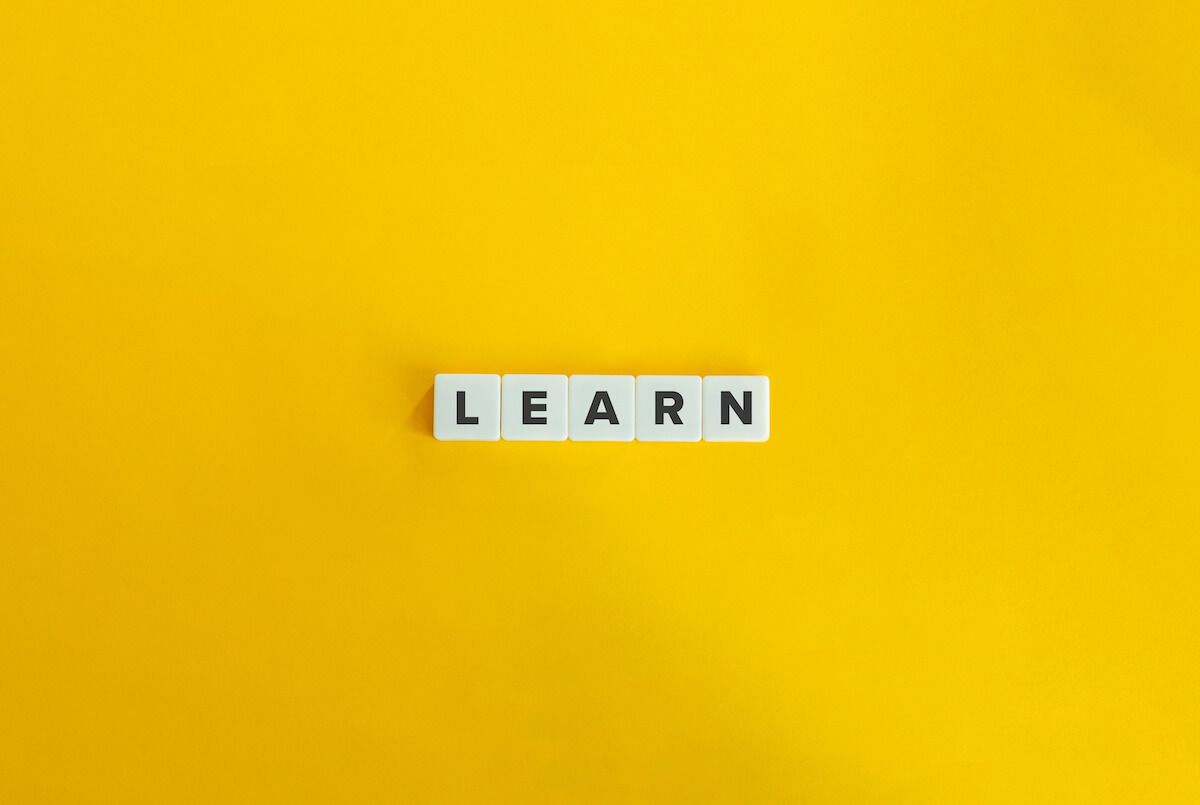When you think of studying, what comes to mind? For many, it’s the image of a student, hunched over textbooks and notes, furiously trying to memorize as much as possible so they can pass an exam.
But studying goes beyond the stereotype of flashcards and cramming the night before a test. Studying is a highly effective — and even enjoyable — way to learn and retain new information as long as you know how to focus.
But it isn't always easy to focus, is it?
For students with so much going on — social lives, extracurricular activities, and other classes — it can be hard to find the focus and motivation needed to study effectively. And for professionals, it can be just as challenging to juggle work, family, and studying for new skills.
Fortunately, there are ways you can hone your concentration, stay on task, and maximize your productivity when studying. Here's how to focus on studying and get the most out of your time.

Before we dive into the how, let's think about the why. Why is it so hard to focus on studying? Although you may be able to name a long list of reasons, they usually all point to one main culprit: distraction.
Whether you're a student, professional, or lifelong self-learner, plenty of distractions are vying for your attention. It might be work or family commitments, stress or anxiety, roommates or TV shows. And let's not even mention the distractions of having too many tabs open and social media.
For those learning in a class, you might struggle with an unengaging teacher or a lesson that doesn't hold your attention. If you're learning at home, there's the temptation to play with the adorable puppy nudging your feet or pick up your phone. Research shows that online students are twice as likely to get distracted by digital devices like their cell phones during studying than face-to-face learners.
On top of that, studying can be intimidating — especially if you’re learning something new or challenging. Rather than facing it head-on, we might just avoid the work altogether, resulting in procrastination.
Whatever your distraction is, understanding why it's hard to focus on studying can help you set yourself up for success when learning how to focus on studying. As you tackle the underlying issues, you can begin to study more effectively.
So why all the fuss about studying effectively? Isn't it enough to just pass the test or interview, get a good grade or earn the job, and then move on?
Not quite. Studying isn't just about memorizing facts — it's a process of understanding, exploring, and experimenting with different ideas and topics. Focused study sessions are key to better understanding, remembering, and applying what you’re learning.
When you focus deeply on what you're studying, you reach a flow state where you're fully absorbed in the material, and you can create meaningful connections that lead to deeper understanding.
What’s more, focused, intentional study time allows you to optimize your information processing and retain information far more effectively than simply cramming. To achieve mastery and expert level comprehension, you need to be able to recall information, think critically about it, and make informed decisions about how to use that knowledge.

Gather information, take notes, review, reflect, surface insights. All from one perfect, distraction-free interface.
Learn more
The importance of focused study sessions is clear. But how do you get there? How do you focus on studying to truly understand and internalize the material?
Whether you're learning for school, work, or a passion project, planning is essential. Try these 13 study tips to stay focused and maximize learning.
Set yourself up for success by creating a study environment that works for you. An ideal workspace should be free from distractions, comfortable, and organized. Some people like the white noise of a coffee shop while others want a dedicated study area at home. To create your study space, find a spot that motivates you and clear away any clutter. Make sure your necessary supplies and resources are within reach, like textbooks, notebooks, pens, or your computer. For an extra dopamine hit, consider setting the atmosphere with aromatherapy or classical music.
Once you’ve set an ideal study environment, you're ready to create a personalized, meaningful learning plan. Setting long- and short-term study goals is the first part of this plan. Start by identifying the big picture, then break it down into smaller goals. For instance, if your long-term goal is to complete your degree in Computer Science, your short-term goal might be to master a certain programming language. Whatever you’re striving for, it's important to keep goals realistic and achievable. No one can become an expert overnight.
With your goals set, the second part of an effective study plan is a schedule. Scheduling your studying is essential to enhance focus and avoid procrastination, two keys to success in learning. To create your schedule, consider things like:
While scheduling is key to effective studying, it's also important to be flexible. You won't always hit every goal or be able to stick to your planned schedule, and that's OK. Just be consistent with your study habits and make adjustments when necessary.
When creating your study schedule, consider trying a few time management techniques to help you stay focused. The task batching technique is a good way to save time and energy by bundling similar tasks together. For instance, try focusing on one subject at a time instead of studying for multiple classes on the same day. This way, your brain won't have to switch tasks constantly and you'll retain productivity.

Creating an ideal study schedule also involves prioritizing. Doing this will help you maximize your study time by focusing on the most important tasks first. How do you determine what's important? Consider how much time each task will take, how relevant it is to your overall goal, and if it requires immediate attention (like for a test). You'll also want to prioritize hard topics that require more practice so you'll have more time to work with them. A time management matrix can help you visualize and prioritize tasks.
Once you have a schedule in place, it's helpful to establish a routine or ritual that you can use before, during, and after studying. Doing something consistently will signal your brain that it’s time to focus. Consider creating a custom series of actions you perform each time you start a focused study, like taking a few deep breaths or lighting a specific candle. Also, consider adding reflective time at the end of your session. A series of in-depth research studies found that people who take the time to reflect on their learning through journaling perform significantly better than people who don't.
With a study plan in place, it's time to tackle the biggest challenge — removing distractions. This means turning off notifications on your phone and laptop, staying away from social media, and giving yourself as much uninterrupted time as possible. To avoid distractions, try using focus tools like browser extensions or apps that block distracting websites. You can also try time management methods like the Pomodoro Technique, where you set a timer and work without stopping for 25 minutes, then take a five-minute break. This is helpful with shorter sessions that don't require intense concentration.
For the ultimate study experience, strive to reach the most focused state possible — the flow state. Pioneered by the “Father of Flow” Mihaly Csikszentmihalyi, this is the feeling you get when you're completely absorbed in an activity, everything else fades away, and you’re performing optimally and intuitively. It takes about 25 minutes to reach the flow state, so schedule accordingly. The key to achieving a flow state is to find the "sweet spot" of material that doesn’t overly challenge or overly relax the brain. Once you enter your flow state, it's easier to focus on studying for long periods of time.
Mnemonics are memory aids that use associations between new information and existing knowledge, like rhymes and acronyms, to help you remember new things. Using these and other memory hacks like visualization and chunking can help you learn new material faster, stay focused, and retain information more effectively.
Although it's easy to get caught up in a long study session, taking breaks is vital to maintaining your health and preventing burnout. If you're studying for an extended period of time, take a break at least once per hour. Stretch, listen to music, or go for a short walk to clear your mind. Bonus points if you can get outside for some fresh air. According to the research-backed Attention Restoration Theory, even a few minutes in nature can help restore your cognitive function, memory, and attention span.
You're probably taking notes on your study material, but did you know that notes about your actual study progress are equally valuable? Make a spreadsheet or use an app — like Evernote, Notion, or Google Sheets — to log data about your study sessions. You can track how long you study, what topics or skills you cover in each session, and any other details relevant to your learning. Seeing how far you've come and what you've accomplished will give you a boost of confidence and a dose of motivation to keep going.
Mastery requires revisiting what you've learned and practicing it until it becomes ingrained in your memory. Once you’ve completed a study session, review it shortly after and periodically in the future. This technique, known as spaced repetition, helps you better retain information and solidify your understanding of the material. If you can, practice the content somehow — try out examples, reproduce diagrams or illustrations on paper to test your understanding, or complete practice questions. Practicing the concepts you study helps cement them in your memory.
Finally, it's important to reward yourself for your successes. Motivation is essential if you want to stay focused and keep studying, so consider setting a goal — like completing three chapters of a book or memorizing 50 words of a new language — and rewarding yourself afterward with something you enjoy. This could be as simple as taking a hot bath, a snuggly nap, or savoring a piece of dark chocolate. Celebrating small wins along the way will help keep you on track and motivated to reach your larger goals.
You've reviewed a few study tips, and you now know how to focus on studying, so it's time to get started. Use these steps to develop a solid study plan to boost your learning. With the right approach and support to reach a focused state, you'll be able to retain more information, master difficult material more quickly, and reach your goals faster.
I hope you have enjoyed reading this article. Feel free to share, recommend and connect 🙏
Connect with me on Twitter 👉 https://twitter.com/iamborisv
And follow Able's journey on Twitter: https://twitter.com/meet_able
And subscribe to our newsletter to read more valuable articles before it gets published on our blog.
Now we're building a Discord community of like-minded people, and we would be honoured and delighted to see you there.